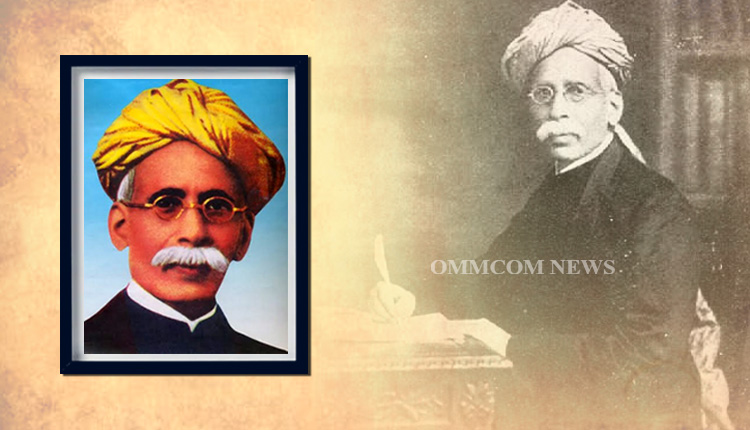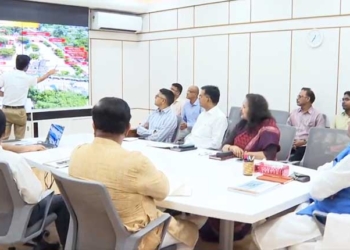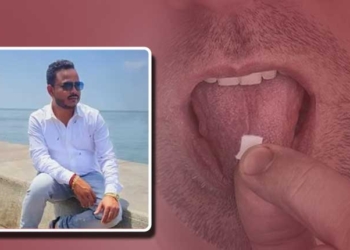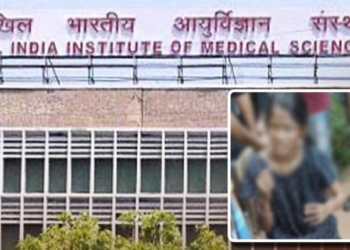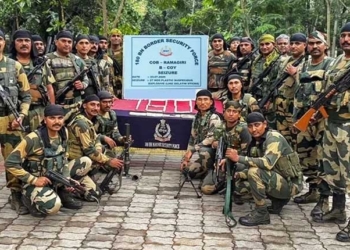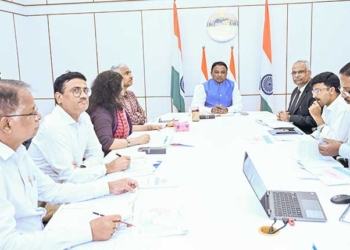Bhubaneswar: Madhusudan Das, fondly known as Madhu Babu was the first graduate and advocate of Odisha. He was born on April 28, 1848, to a zamindar family in Satyabhamapur village in Cuttack, some 20 km from the then capital of Odisha. A poet and freedom fighter, Madhu Babu was also known as Kulabruddha, meaning the Grand Old Man, and Utkala Gouraba (Pride of Utkal).
Madhusudan Das was initially named Gobindaballabh by his parents Choudhury Raghunath Das and Parbati Debi. He had two elder sisters and a younger brother named Gopalballabh. Gopalballabh was a magistrate in Bihar Province and the father of Ramadevi Choudhury.
While in Calcutta for his education, Madhu Babu converted to Christianity and changed his name to Madhusudan Das from his earlier name of Gobinda Ballav Choudhury. This led the conservative villagers to boycott him socially. Consequently, he left his village and built a small house outside the village. The house was known as ‘Madhukothi’ or ‘Balipokharikothi’. Later, it was used as the state office of the Kasturba National Memorial Trust.
Madhusudan had adopted two Bengali girls – Sailabala Das and Sudhansubala Hazra. Sailabala was an educationist who had been trained in England, and in whose name the famous Sailabala Women’s College of Cuttack was founded. Sailabala was Bengali, and her parents had left her in the care of Madhusudan Das and his wife Soudamini Devi at Calcutta. Sudhansubala Hazra was also Bengali and she was the first female lawyer in British India.
In 1864, Madhu Babu passed Matriculation from Cuttack and thereafter he was inclined to become a teacher. He began his career as a teacher at Balasore and continued with the job for three years. In 1866, Odisha witnessed an acute famine in Odisha, called the “Naanka Durviksha.” More than a lakh people perished due to hunger.
After his early education, he moved to Cuttack High School (later known as Ravenshaw Collegiate School) which offered English education. In 1864, he passed the entrance examination and went to Calcutta University. In spite of extremely challenging conditions, he lived in Calcutta for almost 15 years, from 1866 to 1881. In 1870, he became the first Odia to complete his BA. He continued his studies at Calcutta and earned his MA in 1873 and an LL.B degree in 1878, thus becoming the first scholar from Orissa to be thus educated.
After returning to Odisha from Calcutta in 1881, Madhu Babu started his legal practice. His insight and knowledge in this field helped him to earn sufficiently and spend for the common man. He was a source of inspiration for the lawyers in Orissa and in India. His birth anniversary is observed to be Lawyers’ Day in Odisha.
He worked for the political, social, and economic uplift of the people of Odisha and worked as a lawyer, journalist, legislator, politician, and social reformer. He founded the Utkal Sammilani which brought a revolution in the social and industrial development of Odisha. He was elected as a member of the legislative council of Bihar and Orissa Province and under the Diarchy scheme of Government of India Act, 1919, he was appointed as Minister for Local Self-Government, Medical Public Health, and Public Works in 1921.
He was the first Odia to become a member of both the legislative council and the Central Legislative Assembly of India. His long political fight helped unite Odisha and Odisha took birth on April 1, 1936. This day is celebrated as Utkala Dibasa. He was also the first Odia to sail overseas.
Madhu Babu also tried his hand at entrepreneurship. He founded the Utkal Tannery in 1905, a factory producing shoes and other leather products. However, this factory had a short life. In 1897, he founded the Orissa Art Ware Works. With his support, the Tarakasi (filigree) work of silver ornaments achieved a commendable feat.
As a writer and poet, patriotism was always at the forefront of Madhu Babu’s mind, and that was reflected in all of his literary works. He penned a number of articles and poems in both English and Odia. Some of his important poems are “Utkal Santan”, “Jati Itihash” and “Jananira Ukti”.
He was also an influential speaker in Odia, Bengali, and English.
Madhu Babu breathed his last on February 4, 1934, at the age of 85.




